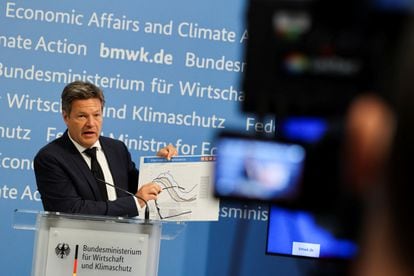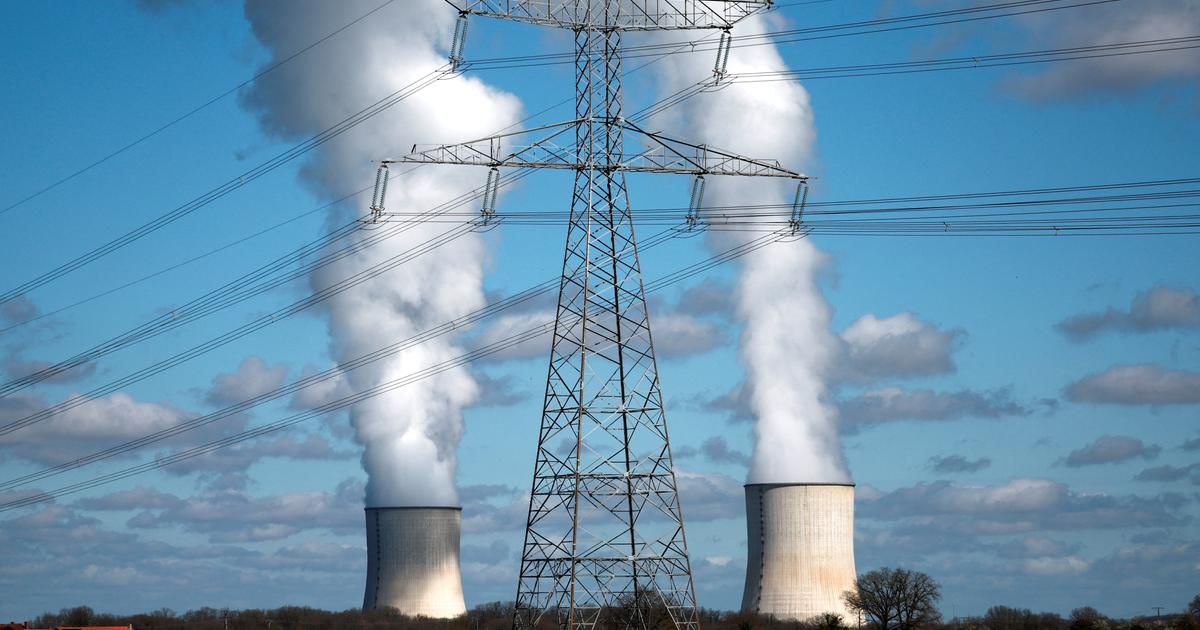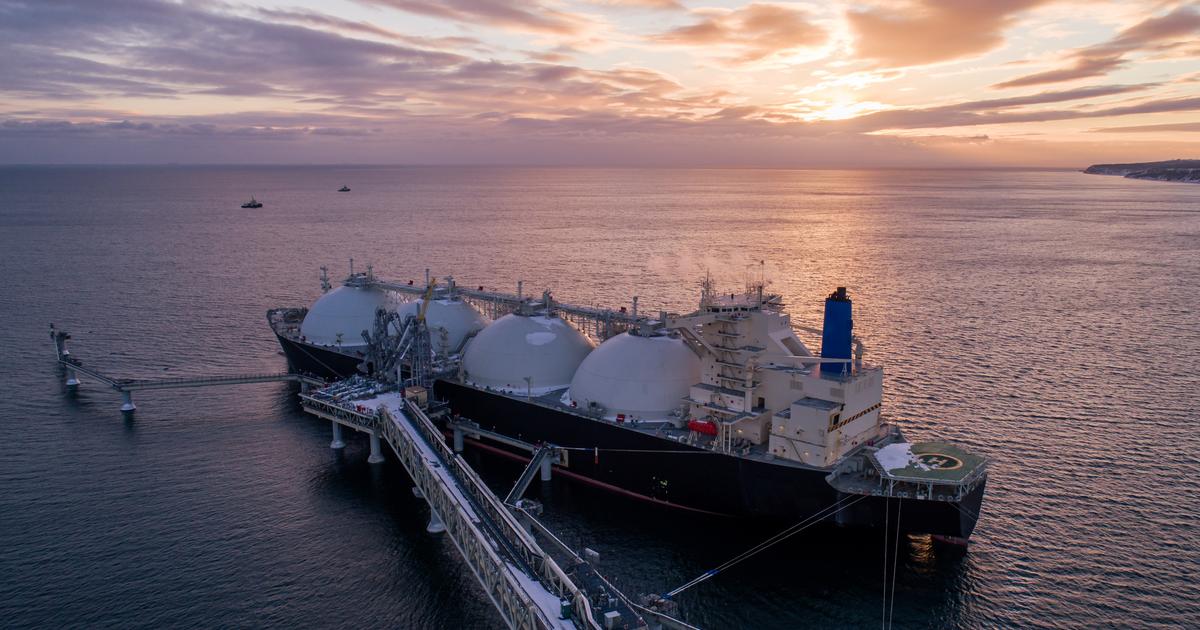The German Minister of Economy and Climate, Robert Habeck, during the press conference in Berlin. CHRISTIAN MANG (REUTERS)
Germany is preparing for possible gas rationing in the event that deliveries from Russia are completely interrupted and in anticipation of not being able to fill the tanks before the fall arrives.
The German Government has raised this Thursday to a second phase the level of alarm after the recent cuts in gas supply, which have reduced to just over a third the amount of hydrocarbon that arrives through the main gas pipeline that is still operational, the Nord Stream 1.
This second level is activated when the Government sees a high risk of insufficient gas supply in the long term and allows, for example, companies to raise prices to users to reduce demand.
However, the German Minister of Economy and Climate, Robert Habeck, assured that this clause will not be activated for the time being.
The situation, in any case, is "serious" and the country must prepare.
"Even if we don't notice it yet, we are facing a gas crisis," he said Thursday at a news conference in Berlin.
"Gas is from now on a scarce commodity," he announced.
Given the decrease in gas flows from its main supplier, Russia, the leading European economy was in phase 1 of its emergency plan since the end of March.
Germany managed to reduce its dependence on Russian gas very quickly, from 55% before the invasion of Ukraine to 35% in mid-April, but the industry and its 83 million inhabitants still need the hydrocarbon to flow through gas pipelines controlled by the Kremlin.
“We must not fool ourselves.
The gas supply cut-off is an economic attack against us by Putin,” the minister assured.
Different organizations and experts, including the Bundesbank, predict that a total cut of Russian imports would plunge Germany into a recession.
More information
Follow live the last hour of the war in Ukraine
Although the situation is delicate, Habeck reiterated that the supply is currently guaranteed and asked the Germans to save energy to the best of their ability.
It is not the first time that the Greens minister has recalled that "every kilowatt hour counts";
he also did it a few days ago by presenting a federal campaign that invites savings and gives practical advice to apply it at home, such as reducing the time of showers or the temperature of the water.
back to coal
The German Executive announced this Sunday that it will have to reactivate its old coal plants, a fuel that it had promised to abandon before 2030, given the risk of a lack of energy supply due to Russia's invasion of Ukraine.
The Government, a tripartite led by the Social Democrat Olaf Scholz, advanced a series of measures to reduce the amount of gas used to generate electricity and to supply industry.
The priority now is to accelerate the filling of the gas tanks in order to reach almost 100% capacity by autumn.
Currently, German storage is at 58%, according to the latest data available from the Federal Network Agency.
The move comes a few days after Russia cut the flow of gas it sends to Germany by two-thirds, citing technical problems.
A decision that Habeck described as "political" and that he attributed to Moscow's will to increase the price of hydrocarbons as a measure of pressure.
Moscow assures that it cannot pump more gas because a turbine from the German company Siemens Energy that it had sent to Canada to review cannot return due to sanctions.
In addition to launching the second phase of the plan, Berlin will provide a €15 billion line of credit to fill gas storage facilities.
This summer a gas auction model will be launched to encourage industrial gas consumers to save.
Industries that can do without hydrocarbons and reduce their consumption will receive incentives that will be financed through the market.
The gas that they do not use will go to storage.
The Ministry of Economy and Climate has deployed since March, when it activated the early warning level, a crisis team that constantly analyzes and evaluates the supply situation.
This working group is also empowered to cut off certain consumers from the network if necessary, that is, to order, for example, certain companies to stop their production to avoid gas consumption and prioritize that of households.
This situation would only be reached in the third phase of the national emergency plan, which establishes that large industrial clients would receive reduced amounts of gas, or no delivery, if rationing is necessary.
Follow all the international information on
and
, or in
our weekly newsletter
.













/cloudfront-eu-central-1.images.arcpublishing.com/prisa/KMEYMJKESBAZBE4MRBAM4TGHIQ.jpg)

